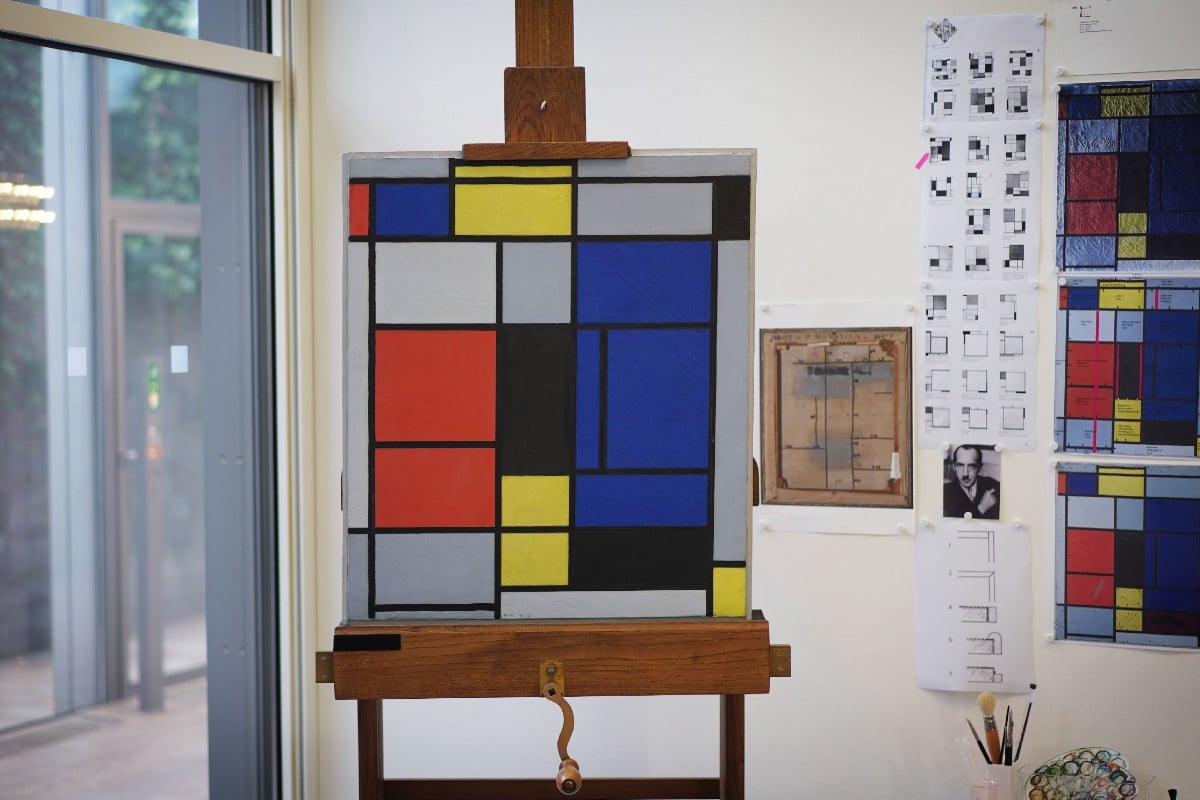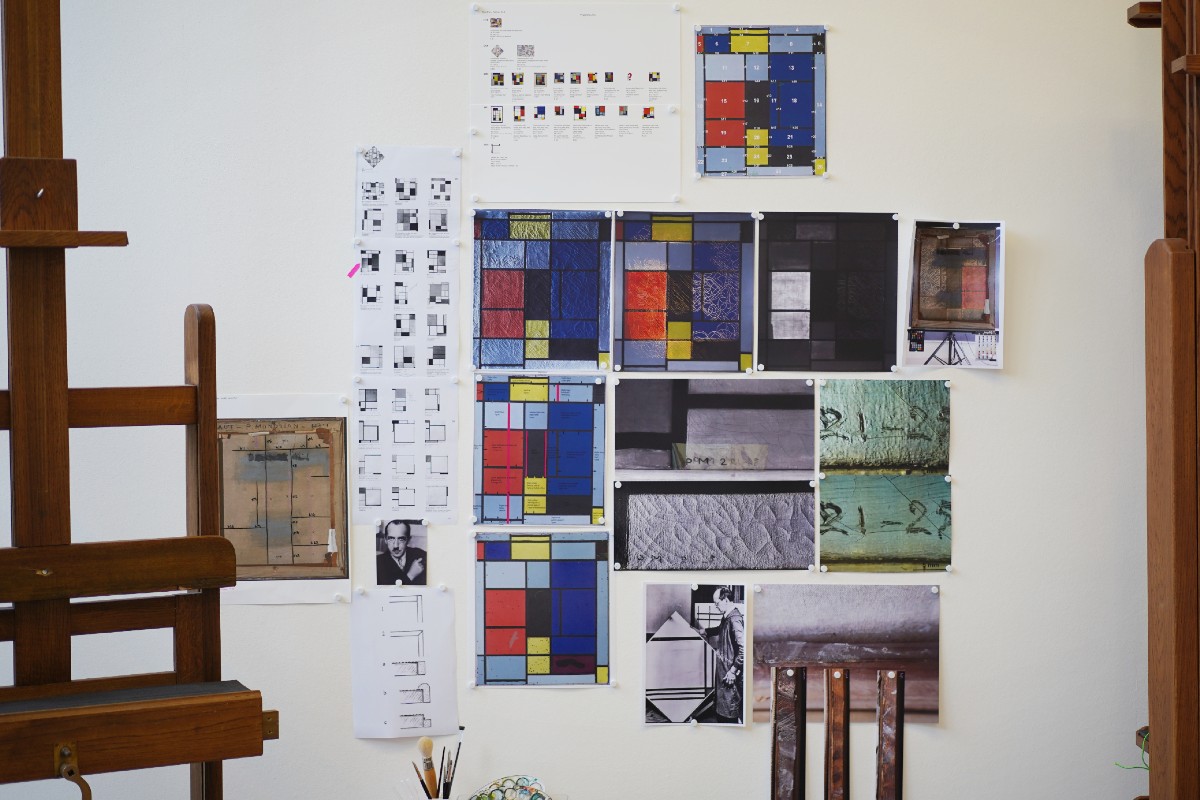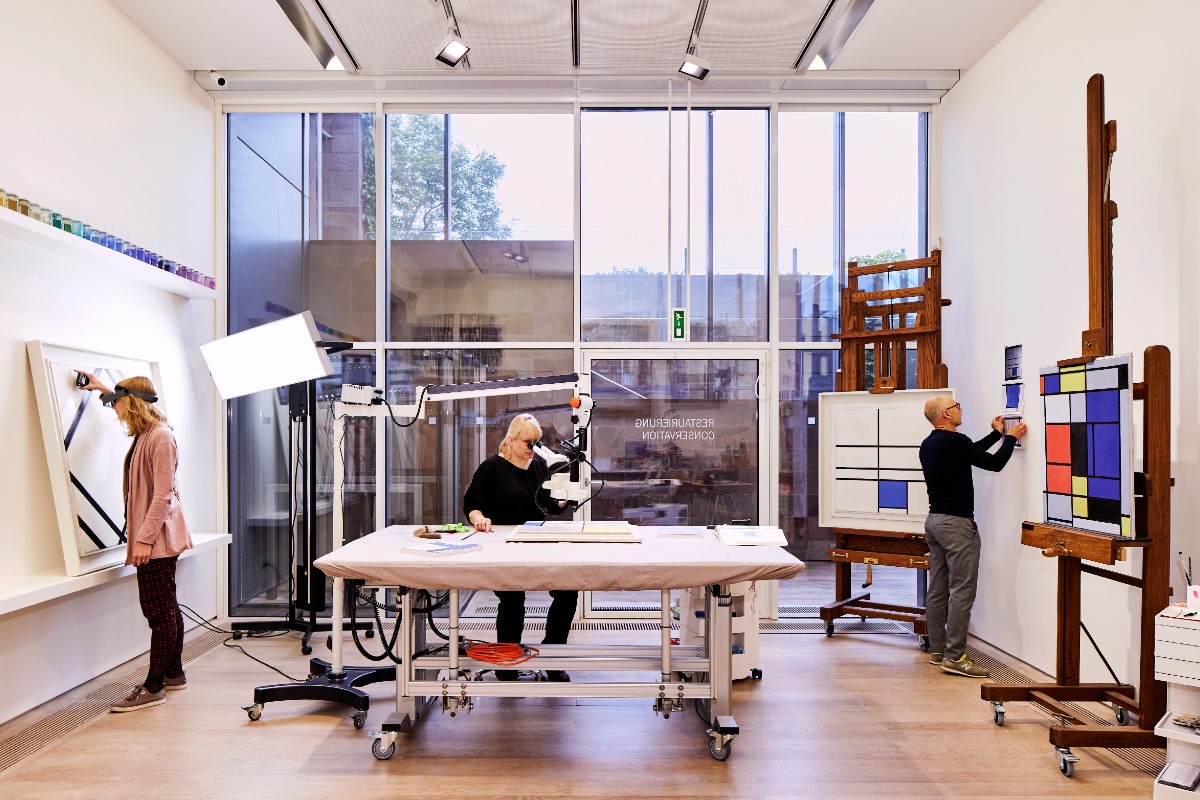Inside the museum preserving Piet Mondrian’s famed paintings
Synonymous with the pursuit for timeless beauty, La Prairie is expanding from scientific skincare expertise to preserving the history-defining artistry of Piet Mondrian.
Regarded as one of the most influential artists of the 20th century, Mondrian pioneered abstract paintings that went on to reshape culture entirely.
To preserve the Dutch painter’s works, which fetch multimillion-dollar figures at auction, La Prairie has partnered with Fondation Beyeler for a two-year conservation project to protect and research four of the seven valuable paintings housed at the Swiss museum.
"It is in line with a vision that we have as a house – to build luxury with a higher meaning," said Greg Prodromides, La Prairie’s Chief Marketing Office. "To be able to contribute back to our communities and do our little part in making this world more beautiful for today, but also for the generations to come."
In a virtual tour of Fondation Beyeler – the place where it all started – The CEO Magazine was among the global guests receiving a firsthand look, pandemic-style, at where the preservation takes place.
Conserving the abstract artworks by Mondrian is multifaceted. It involves studying unique attributes, which includes a fingerprint from the artist himself on ‘Tableau No. 1’, as well as documenting and analysing the pieces.



Much more than simply protecting the art, the project is prolonging the longevity of the significant paintings – ‘Tableau No. 1’, ‘Composition with Yellow and Blue’, ‘Composition with Double Line and Blue’ and ‘Lozenge Composition with Eight Lines and Red’.
Dr Ulf Küster, who has been a curator at Fondation Beyeler since 2004, explained the Mondrian masterpieces were produced between 1921 and 1938 – steadfastly placing the artist’s expressions as truly original while also creating a technique that would go on to be instrumental in 20th century art.
"In his style, he develops this idea of becoming more and more pure and develops the essence of art," Ulf said. "For him, it was the black line, the white form and the three important colours; red, yellow and blue.
"Of these colours, he composes paintings, and he had this idea in each painting to really create a response to the world, the essence of the world, and he always related to nature. It’s the model of even his most abstract paintings."
Each mounted in Mondrian’s original frames, the paintings are described as impeccable works of concentration.
"Art testifies to how people see and understand the world in which we live. It is, therefore, essential to preserve artefacts so we can remember, learn about and honour those who were involved." – Markus Gross
When the eye looks deeper, different shades of white appear to have been used, brush stroke directions change, straight lines were handpainted and the abstract elements balance in harmony – a composition often taking months to achieve.
This obsession with symmetry is said to have led the Dutch artist to shave his moustache in accordance with the balance of his face, Ulf noted, further demonstrating his fascination with harmony in abstract precision.
Delving into the long-term preservation of the paintings, Fondation Beyeler Head Conservator Markus Gross explained the incredible exploration that goes into uncovering how Mondrian worked.
From examining the materials and media used to analysing pigments – no detail is overlooked.
"Another very important aspect we established in the project is we also want to be connected with scientists, which is an important part because there is one step where you can’t have more information about the material," Markus said. "Another important step for us is technical imaging – it’s an important part of the examination of artworks.
"Different light situations, visible light, UV light, infrared light; we can get more information about the painting material and technique.
"Every single piece of information will help us understand the artist and also help us establish the best assessment for conservation for the future."
As art is subject to the test of time, Fondation Beyeler – which is the most-visited art museum in Switzerland – is on a mission to ensure some of the world’s finest artists’ legacies defy eternity to continue culture and art appreciation.
"Art is an important part of our lives," Markus said. "It testifies to how people see and understand the world in which we live. It is, therefore, essential to preserve artefacts so we can remember, learn about and honour those who were involved."
Fearlessly exploring the fundamentals of art through championing the minimalist form, La Prairie mirrors the audacity Mondrian embodied as he captured the world as he saw it.
While the partnership may appear left of field for the Swiss beauty empire, the exclusive patrons of the project have embraced art since La Prairie’s inception in the 1930s.
"Art for us is part of who we are," Greg explained. "Our attitude, our DNA – it is a prism through which we look at the world.
"Clearly, because we share the same set of values – audacity to start with, the willingness to break the codes and innovate; vision of aesthetics and beauty, because at the end of the day this is what we do; and very importantly timelessness, the link between the past, present and future."